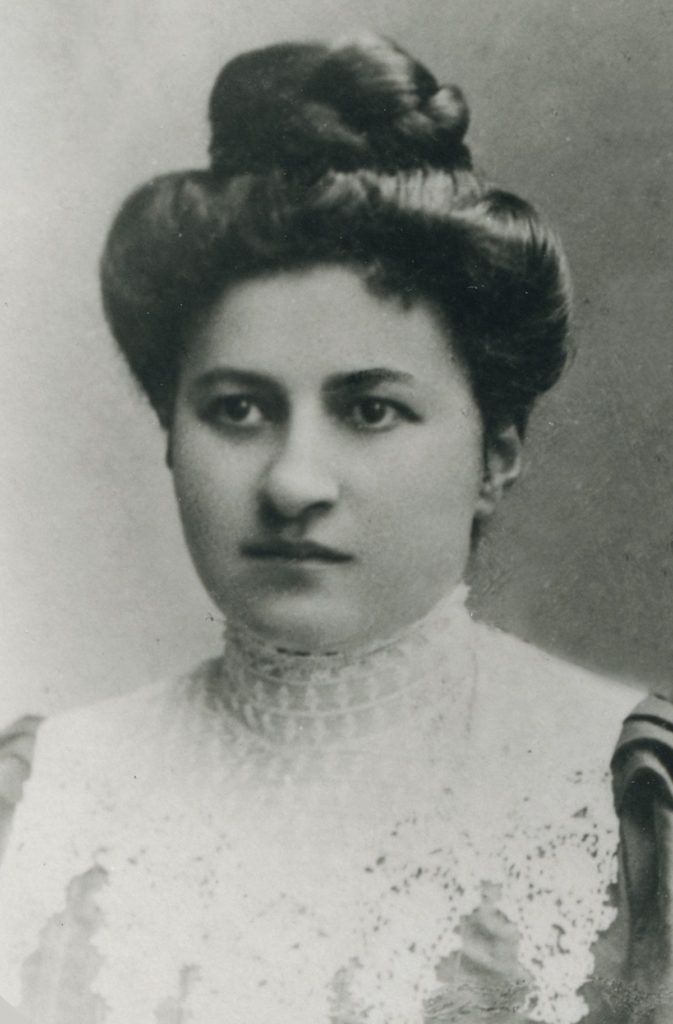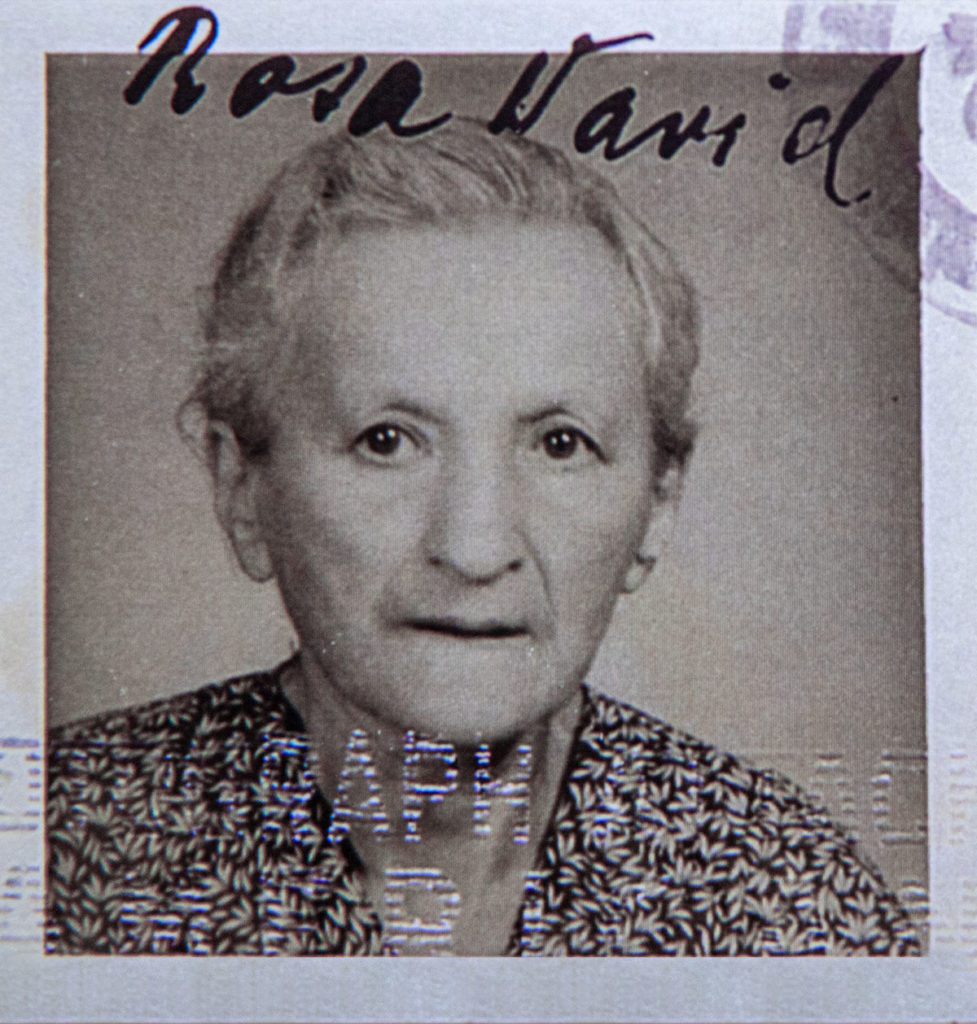Rosa Freund David, 1875–1956, mother.

By her own account, Rosa Freund David had an ideal childhood in a warm and loving family circle. Born in Breslau, she didn’t leave the city until 1940, when she was forced to flee her homeland. Rosa lived through WWI, Germany’s hyperinflation, the death of her husband, the suicide of her oldest son, and the privation and degradation of the war years as a refugee in Shanghai, to finish her life modestly and quietly in Israel.
Rosa Freund was born on the evening of January 16, 1875, the seventh child in a grand total of twelve, to Isidor Freund and Caecilie Nothmann Freund. Her parents were prosperous and deeply religious. Two of Rosa’s brothers attended the Jewish Theological Seminary in Breslau and were ordained as rabbis. Samuel Freund (1868-1939) became a senior rabbi in Hannover as well as the landrabbiner, chief rabbbi of the entire German state of Lower Saxony. Ismar Freund (1876-1956), who graduated from the Silesian Friedrich Wilhelm University as well, was a jurist, historian and leader in the Berlin Jewish Community. Brother Benno, a sock manufacturer, was active in the leadership of Breslau’s Jewish community.
Just shy of 32 when she married Benzion Wolff David, Rosa may have been a teacher, although her marriage certificate states she had no profession. Three children followed in relatively quick succession: Felix (February 15, 1909), Ismar (August 27, 1910) and Selma (September 12, 1912). The family was religiously orthodox, culturally German and solidly middle class. A servant girl also lived with the family and when the children were small, they had an adored nanny.
Benzion Wolff David was an independent general insurance agent. During his military service from 1915 to 1918, Rosa carried on with the business. She and the children all pitched in the years of his declining health after his return from the war. After Benzion’s death in 1930, the Breslau telephone book listed Rosa as an insurance agent.
Living in Berlin in 1932, son Ismar was eager to try his chances outside of Germany and emigrated to Palestine when the opportunity presented itself. As racial laws slowly strangled the Jewish population, he attempted to aid his family without success. Felix refused to leave his position in Stuttgart. Selma and her family got approval to travel to Shanghai on November 3, 1938. Then, on November 12, 1938, shortly after Reichskristallnacht, Felix and his family were found dead from suicide in their apartment. Rosa, who had sworn she would not leave Germany while she had a child still living there, somehow endured until January 16, 1940, when she received permission to exit the country to join Selma in Shanghai. Rosa’s sister Martha was not so fortunate. She was deported from Breslau on July 7, 1942 to Theresienstadt and on September 23 to Treblinka. Of Rosa’s other 10 siblings, Benno had died in 1914, Hugo, was missing in action and presumed dead in 1917, Johanna had died in 1921, David in 1935, Selma in 1937 and Samuel in 1939. Brother Ismar with his wife and three children had fled to Palestine in November 1938.

After six years in Japanese-occupied China, the relationship between Rosa and her daughter was severely frayed. Relatives in Australia made it possible for Selma and family to leave China in May of 1945. In the second half of 1947, the Jewish Agency arranged Rosa’s passage to Palestine, via the U.S. She arrived in San Francisco on the S.S. General W. H. Gordon, a converted troop ship at the end of November. After a transcontinental train ride, she had what must have been a bittersweet reunion with her surviving son at Grand Central Station, before continuing on to Haifa. She spent her remaining years in Israel and died on March 29, 1956.

























